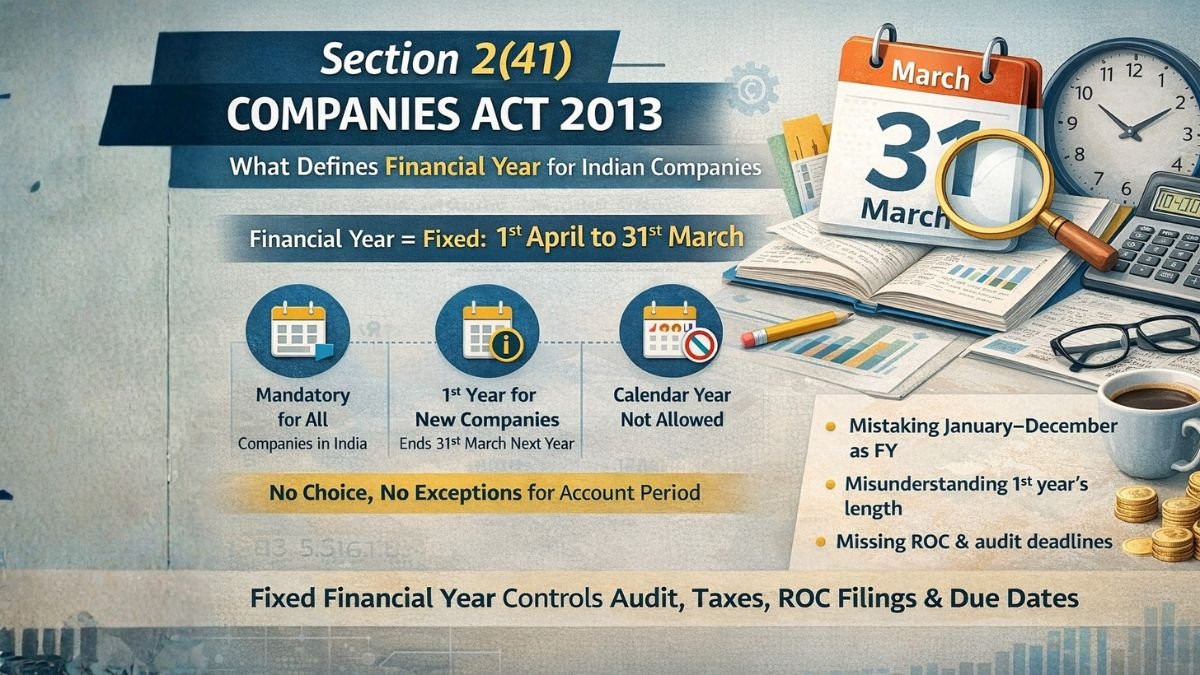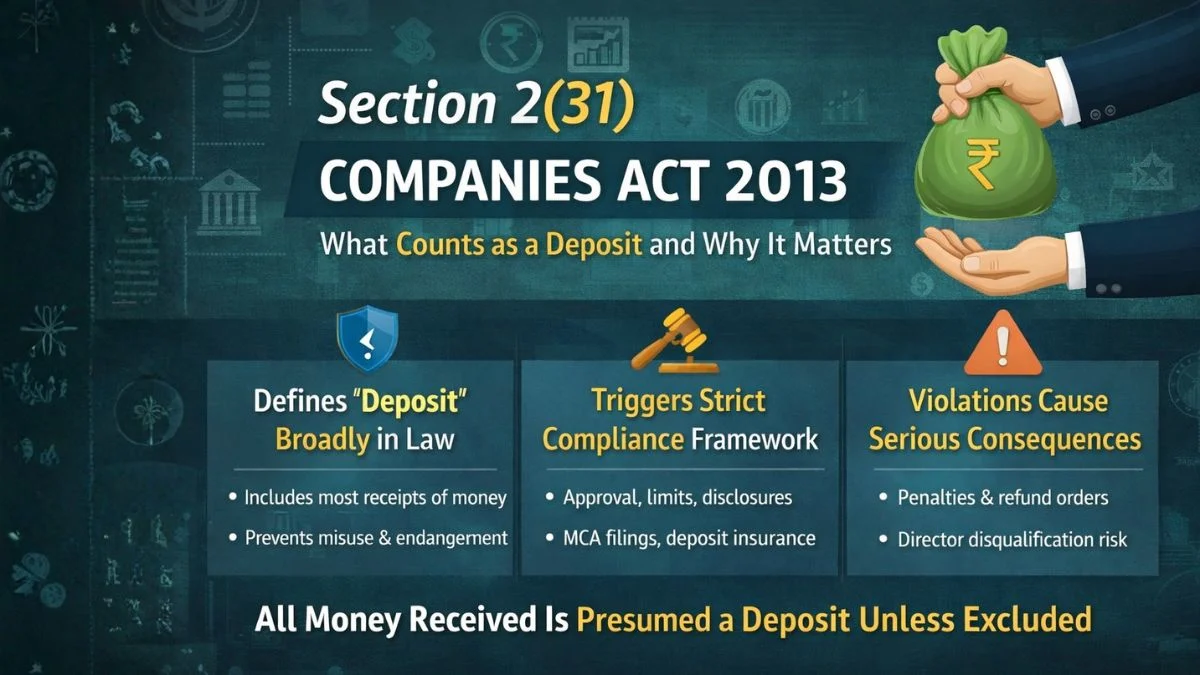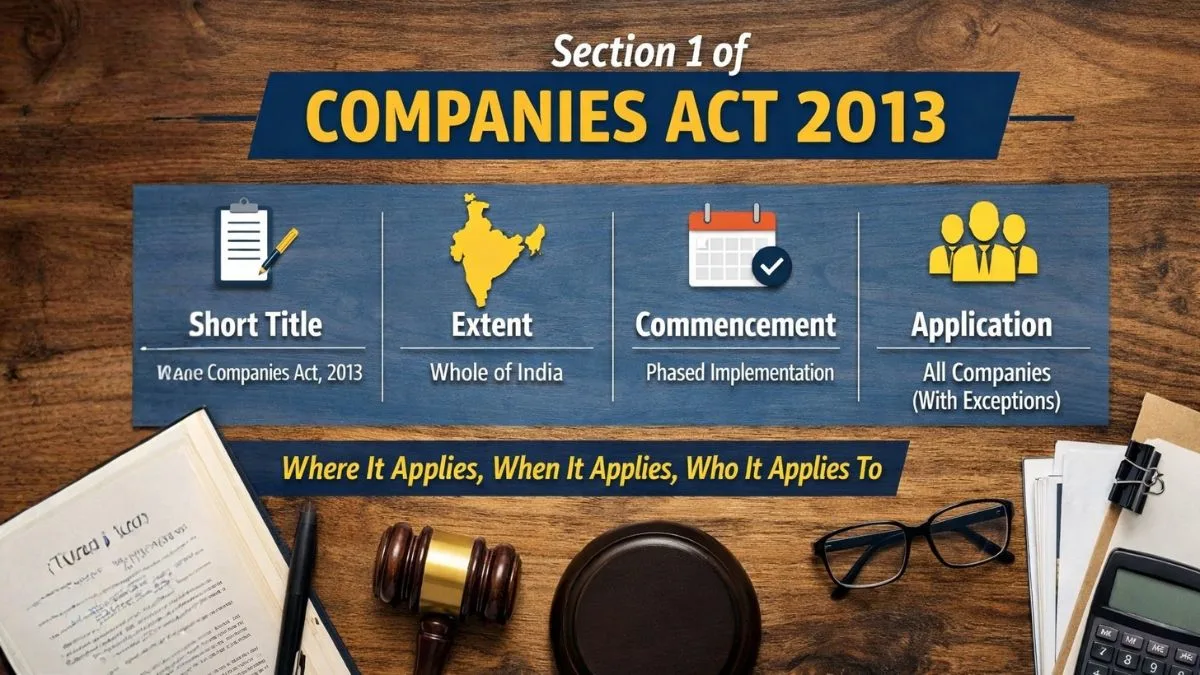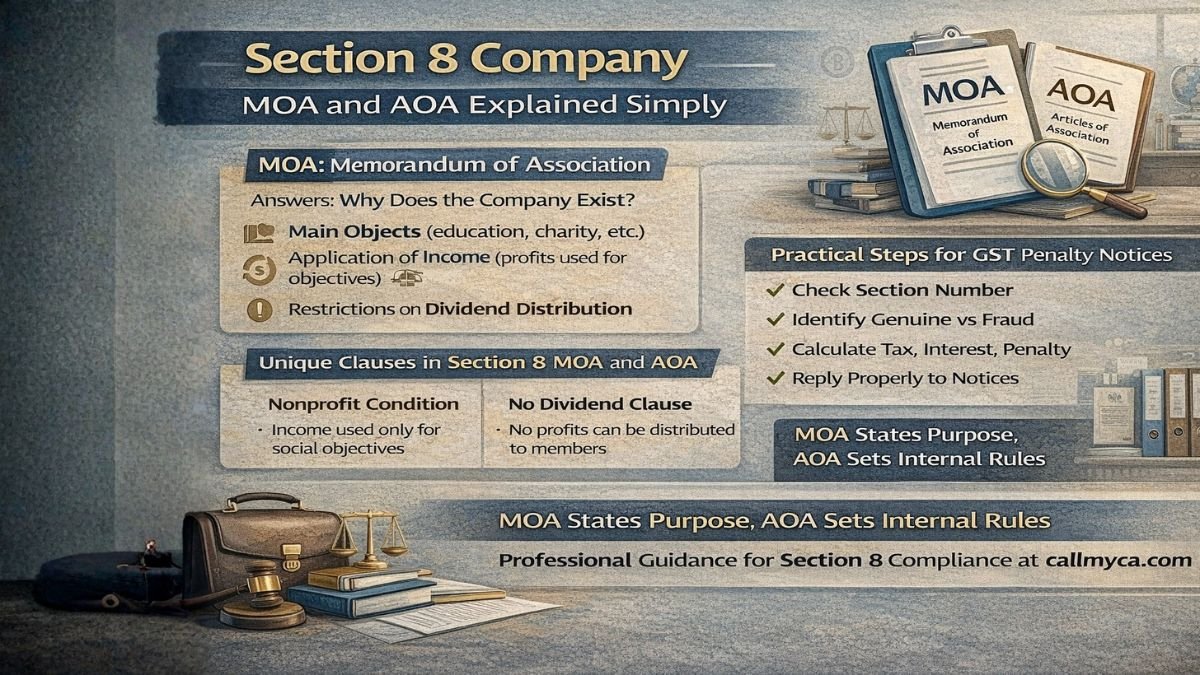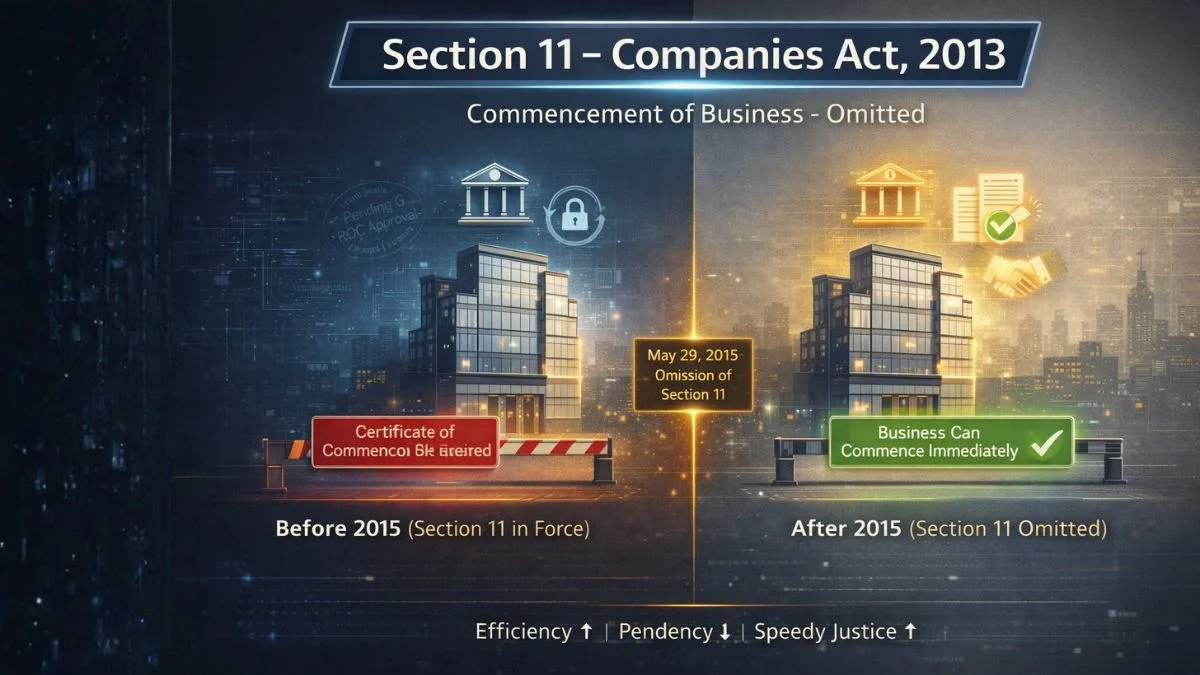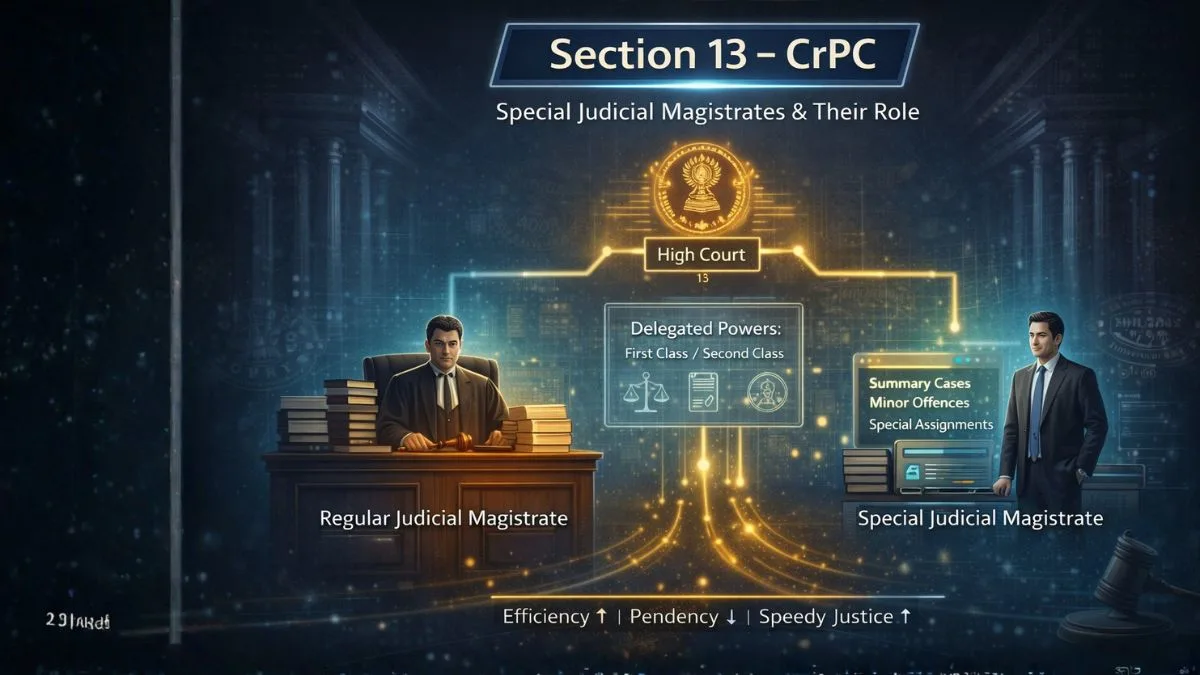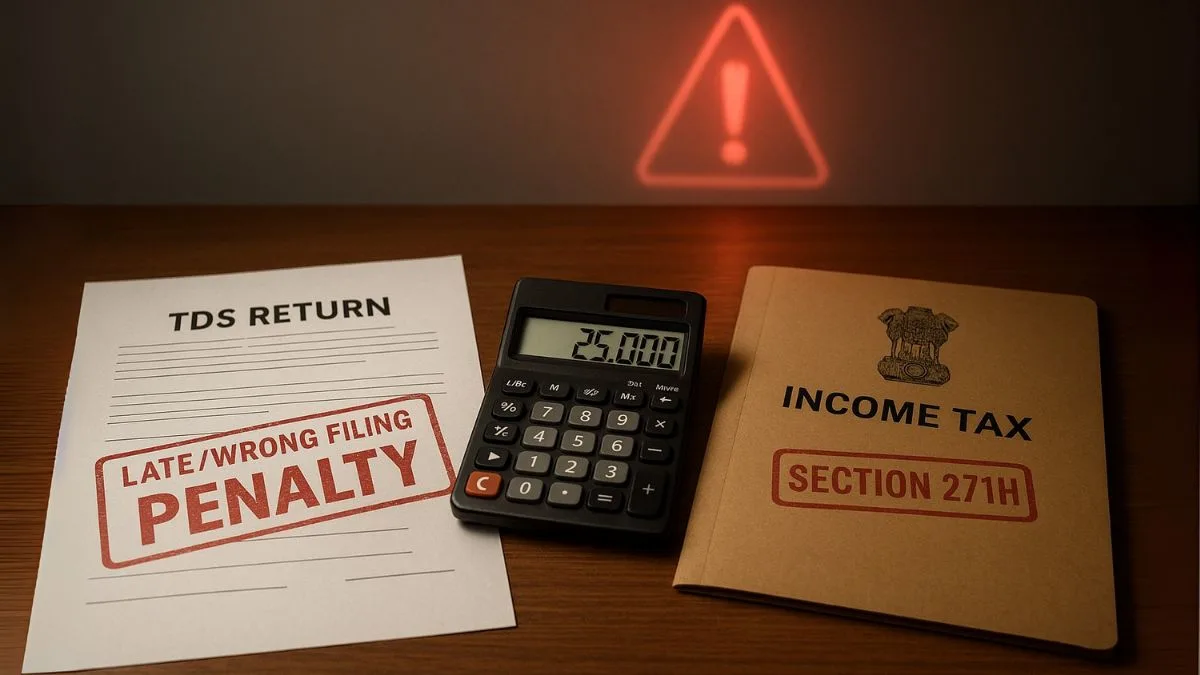
ax compliance in India is incomplete without timely filing of TDS and TCS returns. While most taxpayers are careful, delays and mistakes still happen. To ensure strict discipline, the law has provisions for penalties. Section 271H of Income Tax Act is one such provision that penalizes taxpayers for failure to furnish statements of TDS or TCS or for furnishing incorrect details.
This section ensures that deductors and collectors meet their compliance obligations without fail. In this blog, we will explain penalty for failure to furnish statements, incorrect information, delay in filing, relief provisions, and practical examples.
What is Section 271H of Income Tax Act?
Section 271H of Income Tax Act imposes a penalty on taxpayers for not filing TDS or TCS returns. It applies in two major cases:
- When the Deductor / Collector fails to furnish the Tax Deducted at Source (TDS) return or Tax Collected at Source (TCS) return within the due date.
- When the Deductor furnishes incorrect details in the statement such as PAN, amount, or challan number.
Thus, Section 271H not only deals with non-filing but also with errors in reporting.
Why is Section 271H Important?
TDS and TCS are critical for revenue collection as they ensure tax is collected at the source itself. Delays or wrong reporting affect the credit availability of taxpayers and disturb compliance. Hence, Section 271H penalizes the Deductor / Collector who fails to furnish the Tax Deducted at Source (TDS) or furnishes wrong details.
Key Provisions of Section 271H
- Penalty for Delay
- Penalty for failure to furnish statements, etc is minimum ₹10,000 and can extend up to ₹1,00,000.
- This applies when returns are not filed within the prescribed due date.
- Penalty for Incorrect Information
- Section 271H also penalizes the Deductor who furnishes incorrect information in the TDS/TCS statement.
- Wrong PAN, challan number, or mismatch in amount may invite penalty.
- No Penalty in Certain Cases
- If the taxpayer has paid TDS/TCS, filed the return within one year of due date, and paid late fees under Section 234E, then penalty under Section 271H may not be imposed.
Difference Between Section 234E and Section 271H
- Section 234E imposes a late filing fee of ₹200 per day until the return is filed.
- Section 271H imposes a penalty ranging from ₹10,000 to ₹1,00,000 for delay beyond limits or incorrect filing.
- Both can apply together, meaning a Deductor might have to pay both late fees and penalty.
Also Read: The Cost of Delay in Filing TDS Returns
Example of Penalty Under Section 271H
Let’s say a company deducts TDS of ₹50,000 in June 2023 but fails to file its TDS return by the due date (31st July 2023).
- If it files the return in February 2024, delay = 7 months.
- Late fee under Section 234E = 200 × ~210 days = ₹42,000.
- Penalty under Section 271H = minimum ₹10,000 (may extend to ₹1,00,000 depending on severity).
Thus, the total liability could easily cross ₹50,000, showing how non-compliance becomes costly.
Relief from Penalty Under Section 271H
The law also provides some relief if the Deductor acts in good faith:
- If the TDS/TCS has been deposited with interest.
- If the return is filed within one year from the due date.
- If late filing fees under Section 234E have been paid.
In such cases, the Assessing Officer may choose not to impose penalty under Section 271H.
Practical Challenges Faced by Taxpayers
- System Errors – Sometimes, technical glitches in the income tax portal lead to delays.
- PAN Mismatches – Employees or vendors often provide incorrect PAN, resulting in wrong filings.
- Cash Flow Issues – Businesses may delay TDS deposit due to liquidity crunch, leading to late filing.
- Unawareness in Small Businesses – Many small traders and professionals are unaware of TDS/TCS compliance rules.
Judicial Views on Section 271H
The Income Tax Appellate Tribunal (ITAT) has in many cases held that penalty should not be imposed if the delay was unintentional and the deductor paid tax and interest. This makes it clear that while the law is strict, relief is possible if compliance is eventually done.
Also Read: Penalty for Not Filing an Income Tax Return (ITR)
How to Avoid Penalty Under Section 271H?
- Timely Filing – File TDS/TCS returns within due dates (quarterly).
- Accurate Data – Ensure PAN, challan details, and deduction amounts are correct.
- Regular Reconciliation – Match Form 26Q/24Q with challans before submission.
- Use Professional Help – Consult a CA or tax professional to avoid errors.
Conclusion
Section 271H of Income Tax Act is a strict provision that enforces discipline among taxpayers by imposing penalties for late filing or incorrect filing of TDS/TCS returns. It clearly states that the law penalizes the Deductor / Collector who fails to furnish the Tax Deducted at Source (TDS) return or furnishes wrong information. While the penalty for failure to furnish statements, etc is heavy, relief is available if dues are paid, and returns are filed within one year.
For businesses, timely compliance is not just a legal requirement but also helps maintain trust with employees, vendors, and the Income Tax Department.
Missed your TDS or TCS return deadline? Don’t risk heavy penalties under Section 271H. At Callmyca.com, our experts ensure accurate and timely filing so you stay 100% compliant.

